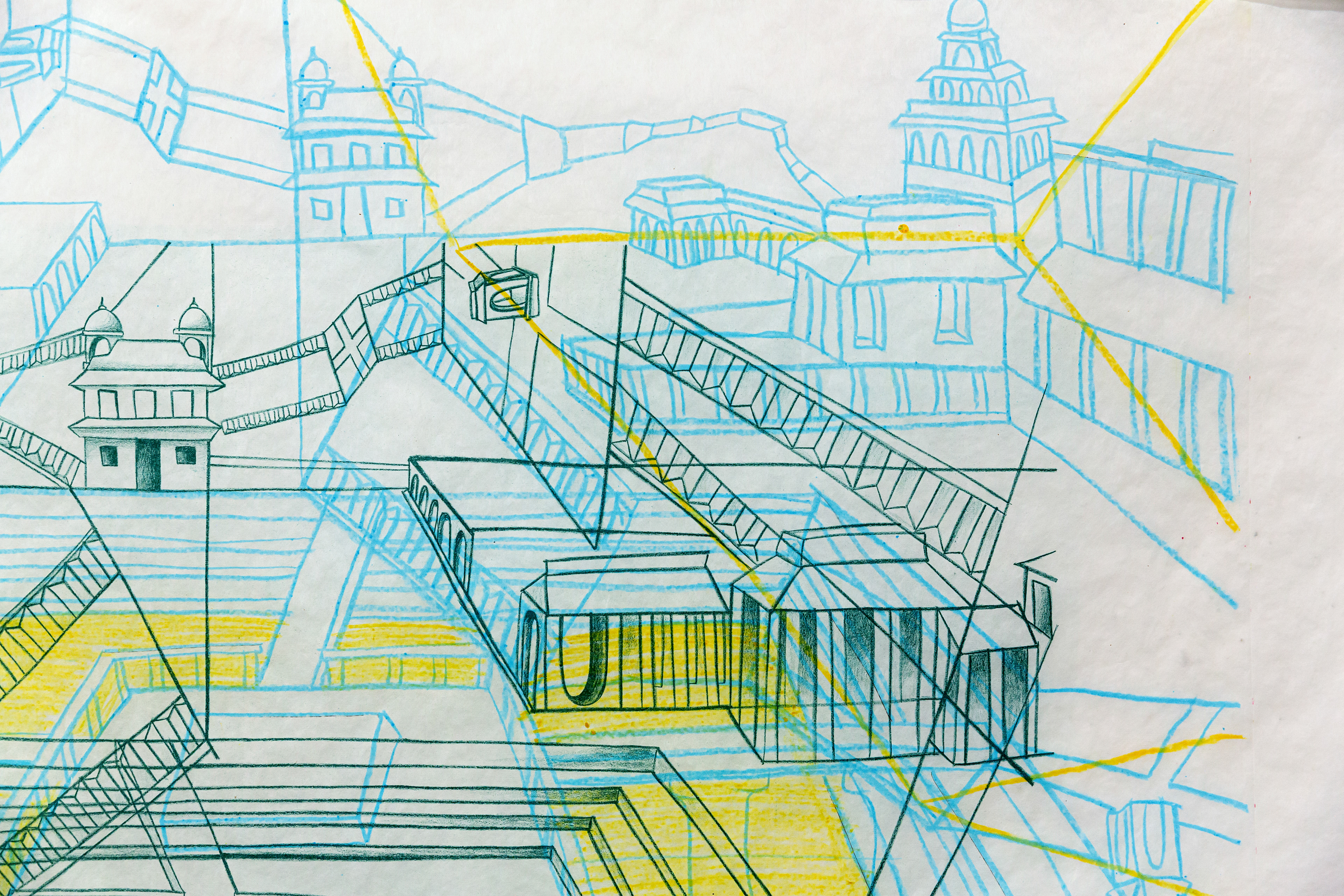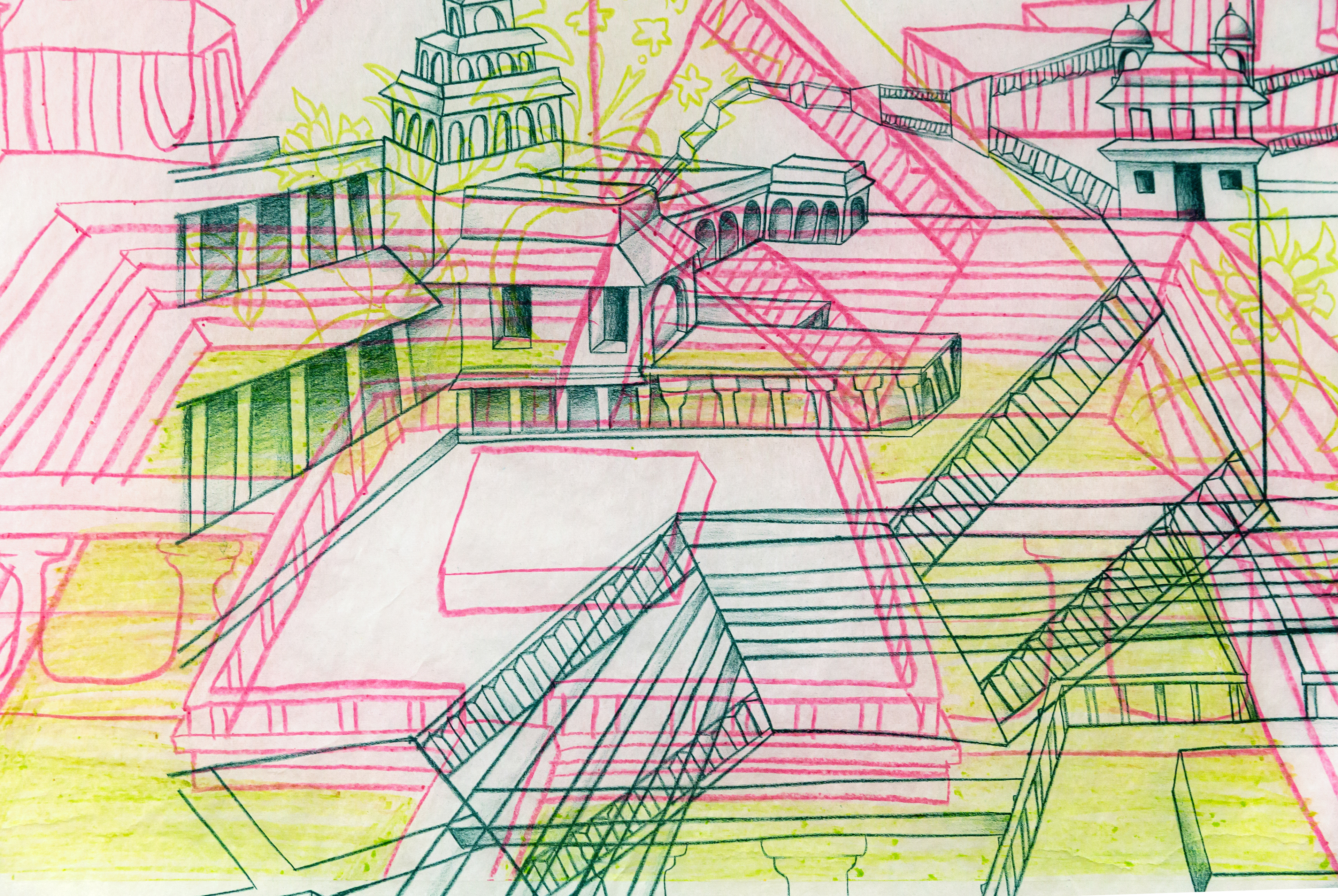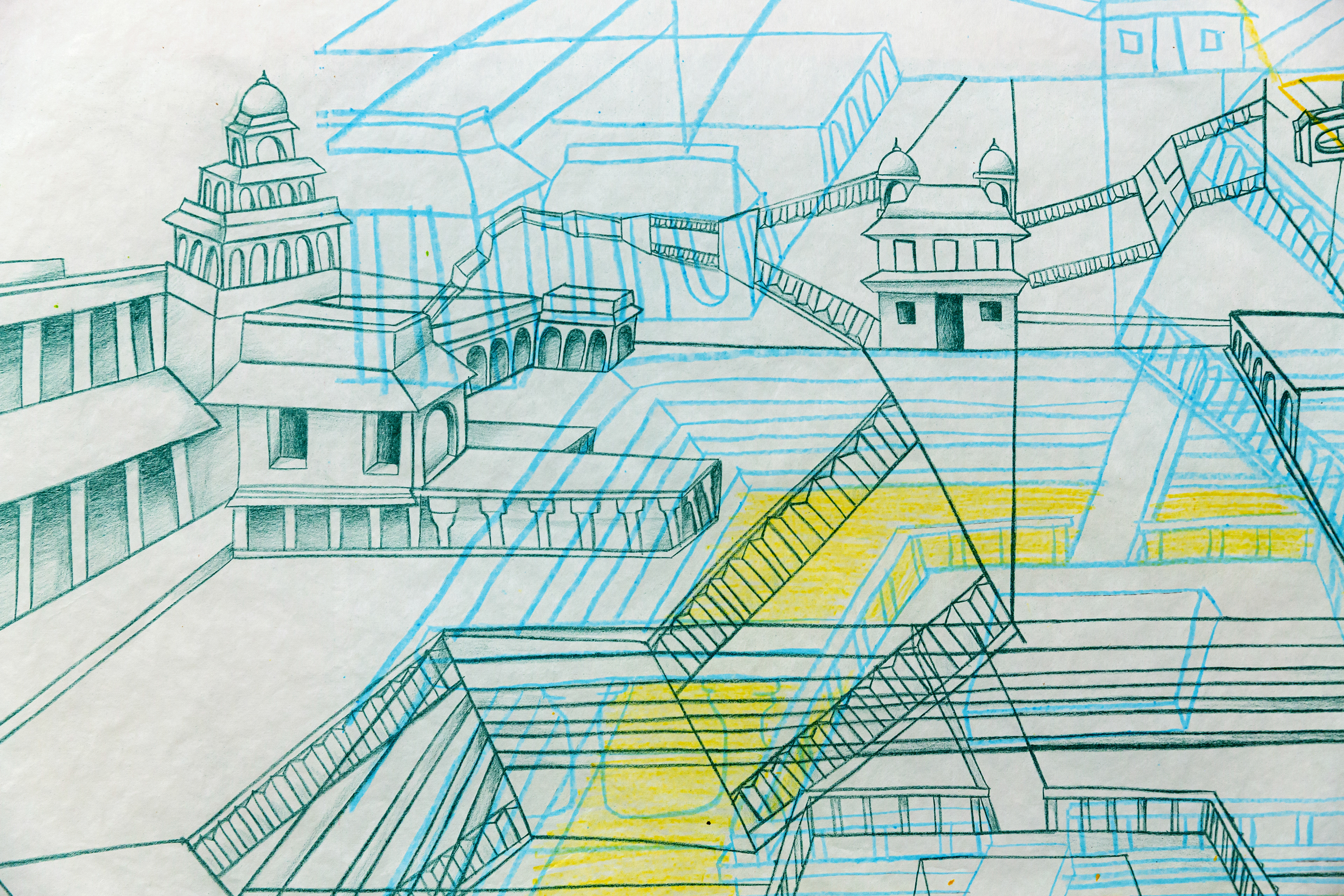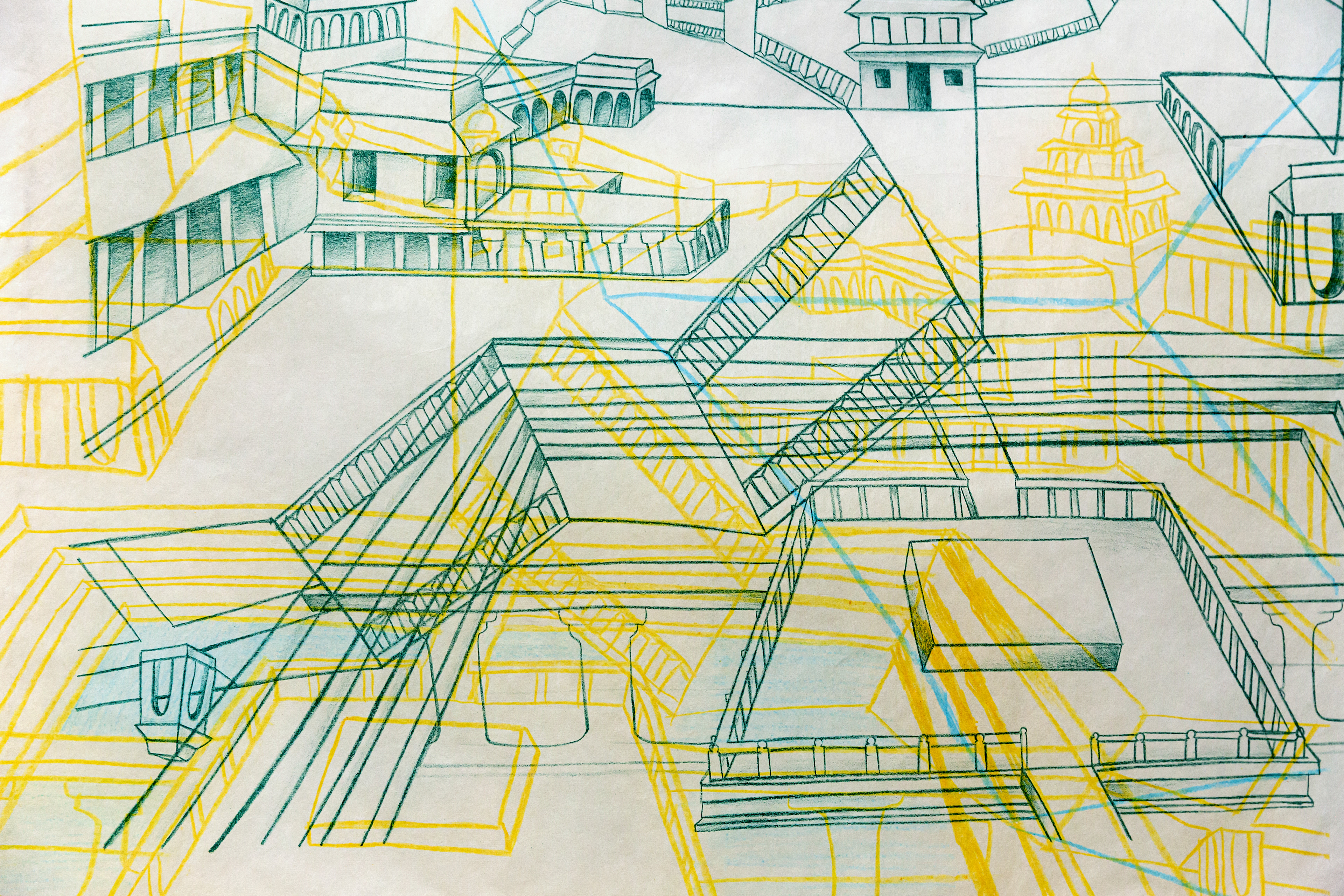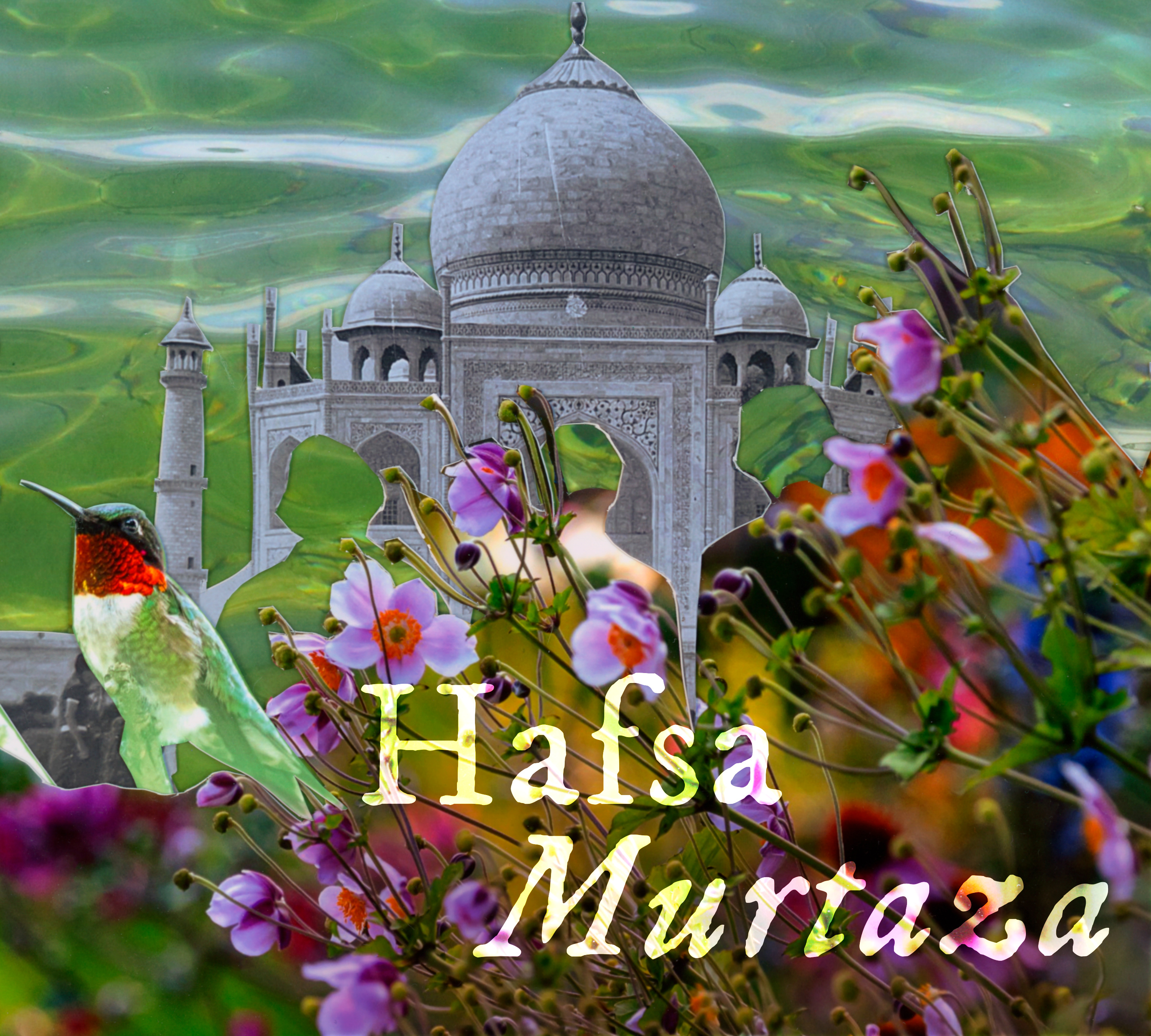Hafsa Murtaza, Reciprocal Islamic Garden, 2025
Waterless lithograph and watercolour monoprint on Japanese washi paper.
27 in x 37 in each
In our contemporary society of border control, nationalism, and securitization, there is a need to create social spaces of encounter where varying cultural identities can coexist while maintaining their differences through solidarity. Since the 8th century, Islamic gardens have embodied sites of cultural encounter: empires entering new regions bring architecture styles, water innovations, and garden traditions with them while learning from and enculturating into new cultures. The waterless lithograph and monoprints recreate the Mughal garden of Anup Talao in the former capital of Fatehpur Sikri, India; the garden features red brick buildings and a central basin with a seemingly floating seating area intersected by four pathways and no plants but relief floral motifs on the sandstone walls. The seemingly recognizable landscape becomes disorienting and imaginary, similar to Piranesi’s imagined prisons; the work can be seen in all orientations, on the front and back of the translucent paper, with a circular movement of floral and architectural flat motifs. The complicated space alludes to the complex nature of cultural encounters that evolve and transform as if in flux.
In a time when India’s BJP media campaign touts India as being an inherently Hindu land, inciting anti-Muslim sentiment, this work acknowledges the subcontinent’s history of Muslim empires like the Mughals, who ruled as a minority religious group and shaped the land to be what it is today through cultural tolerance.
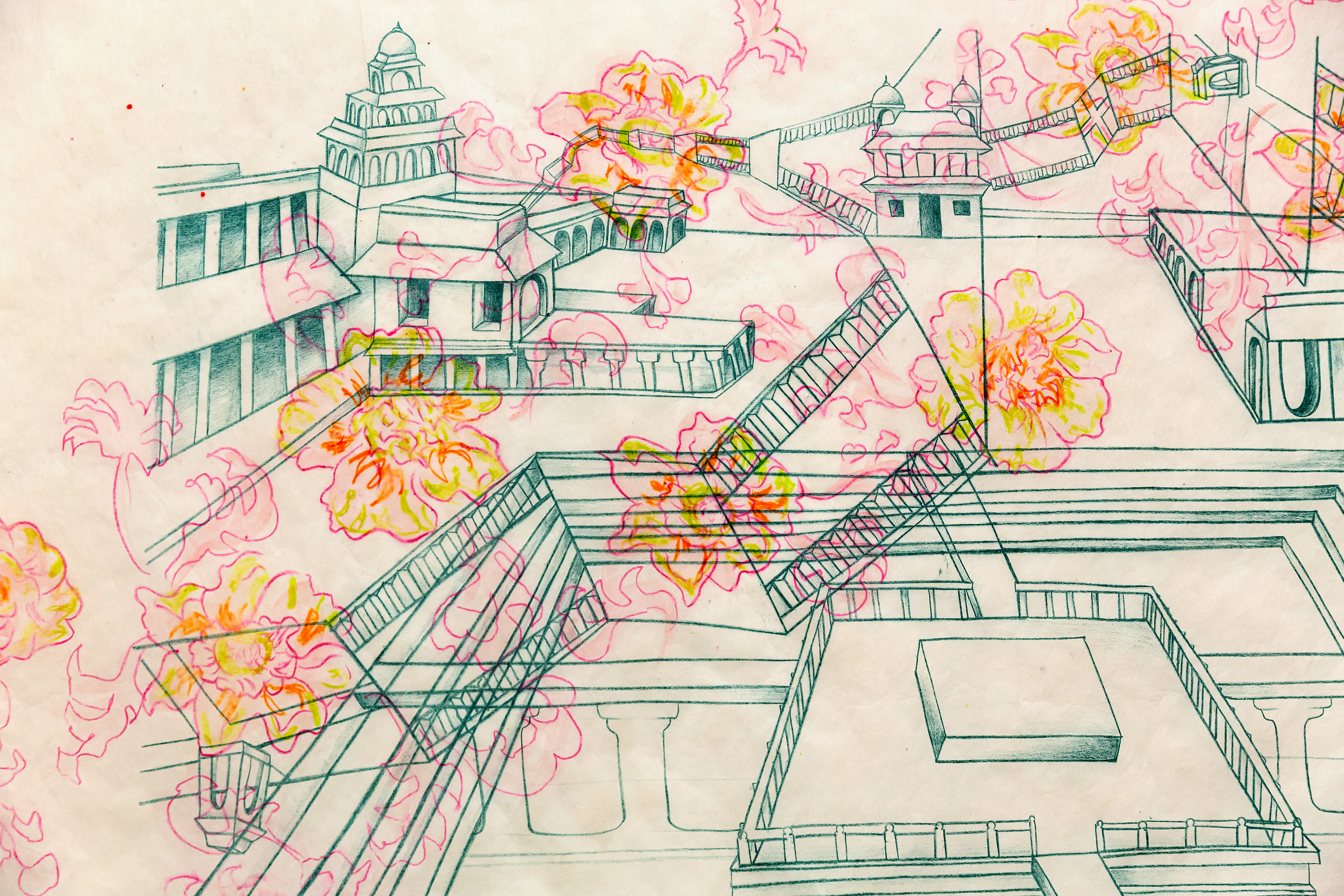

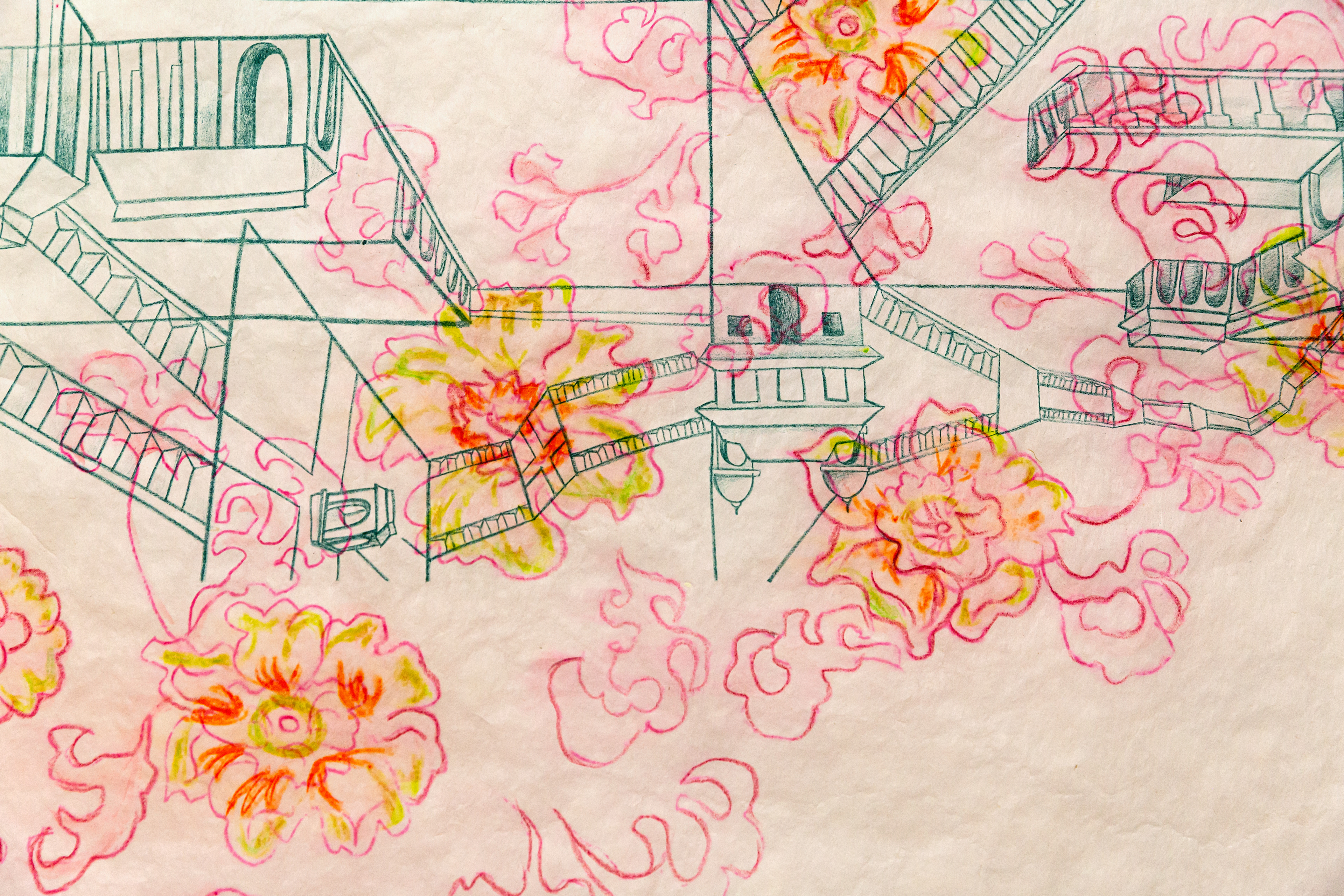
Hafsa Murtaza, Layered Islamic Garden, 2024
Waterless lithograph and watercolour monoprint on Kozuke washi paper.
27 in x 37 in each
